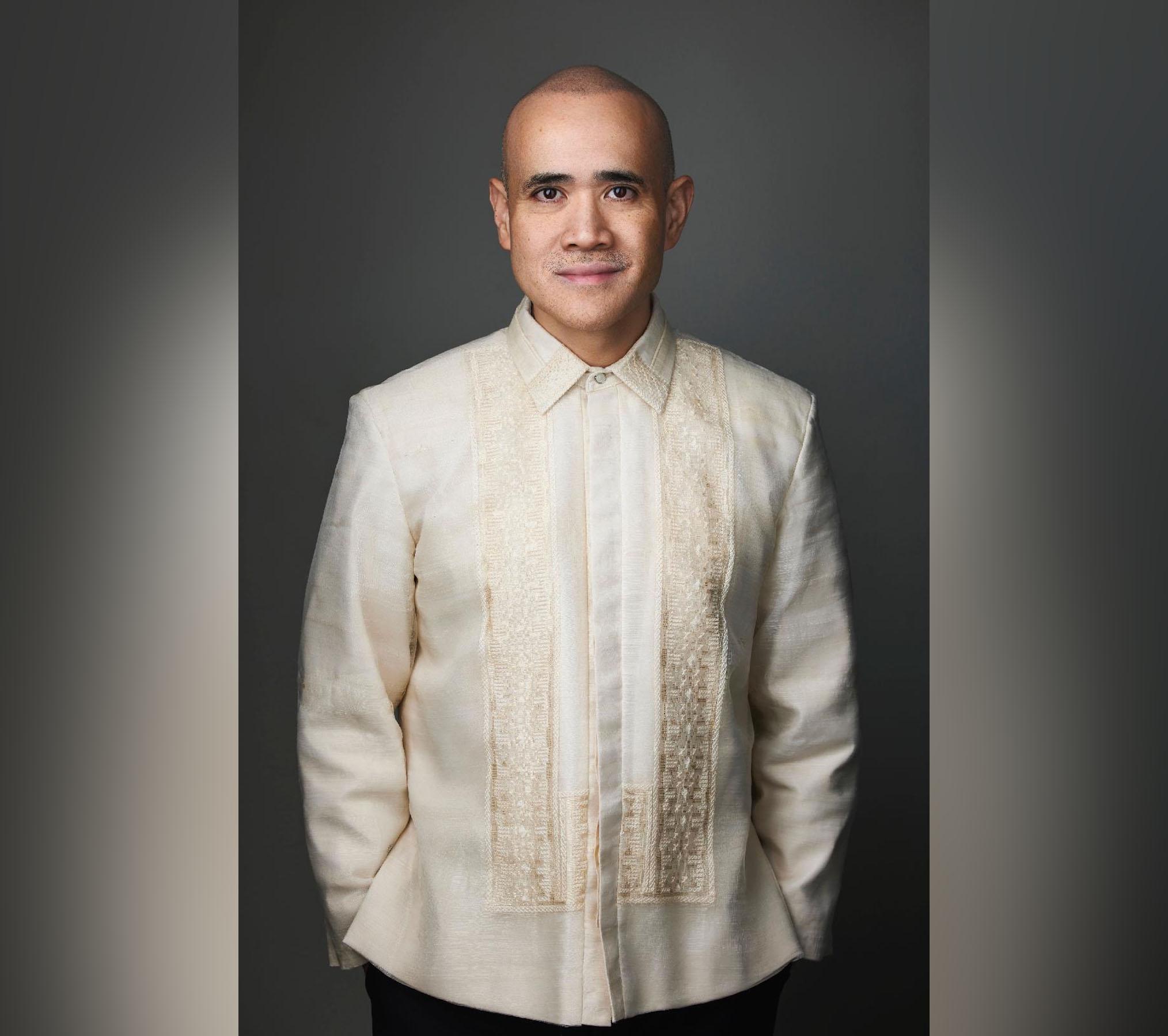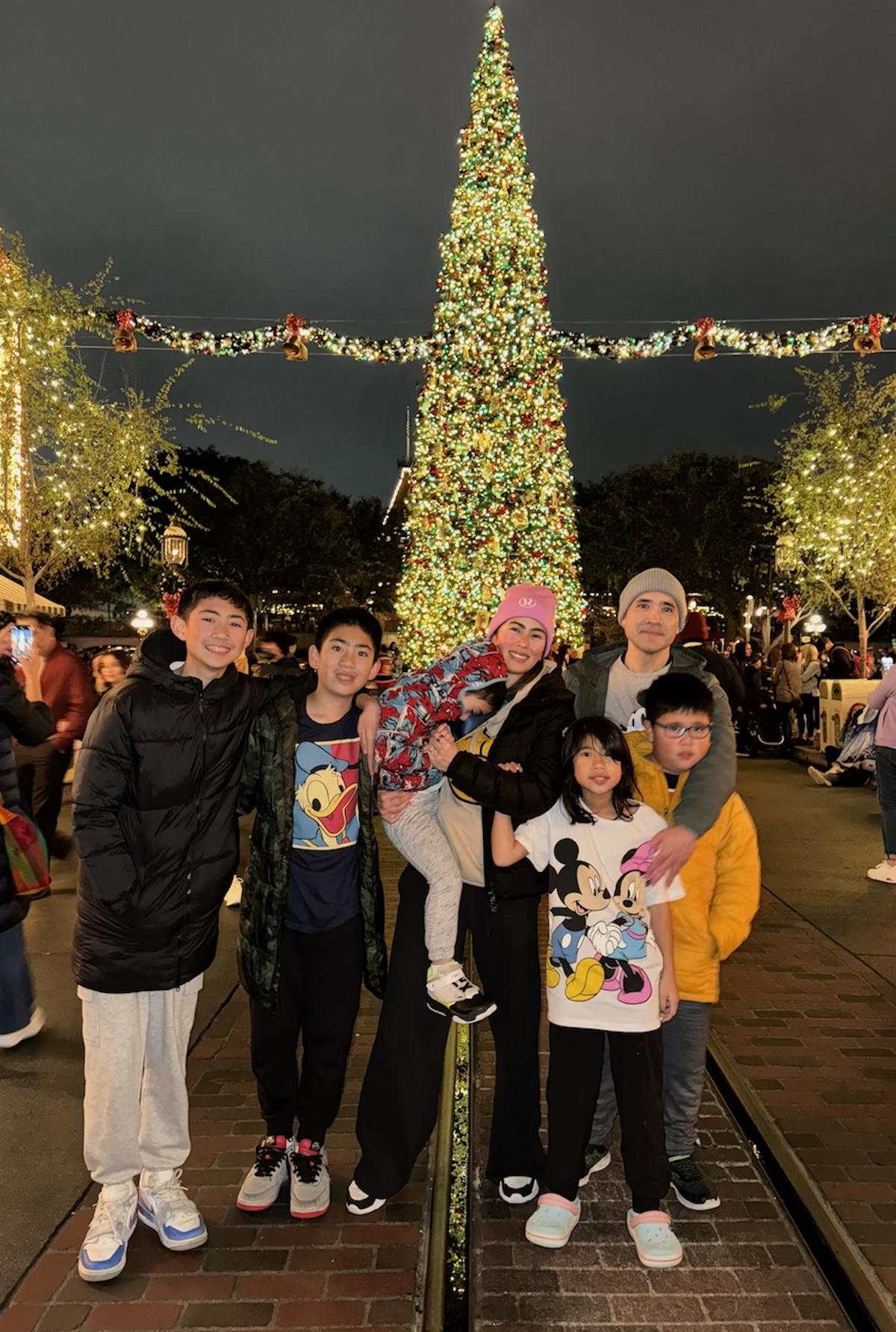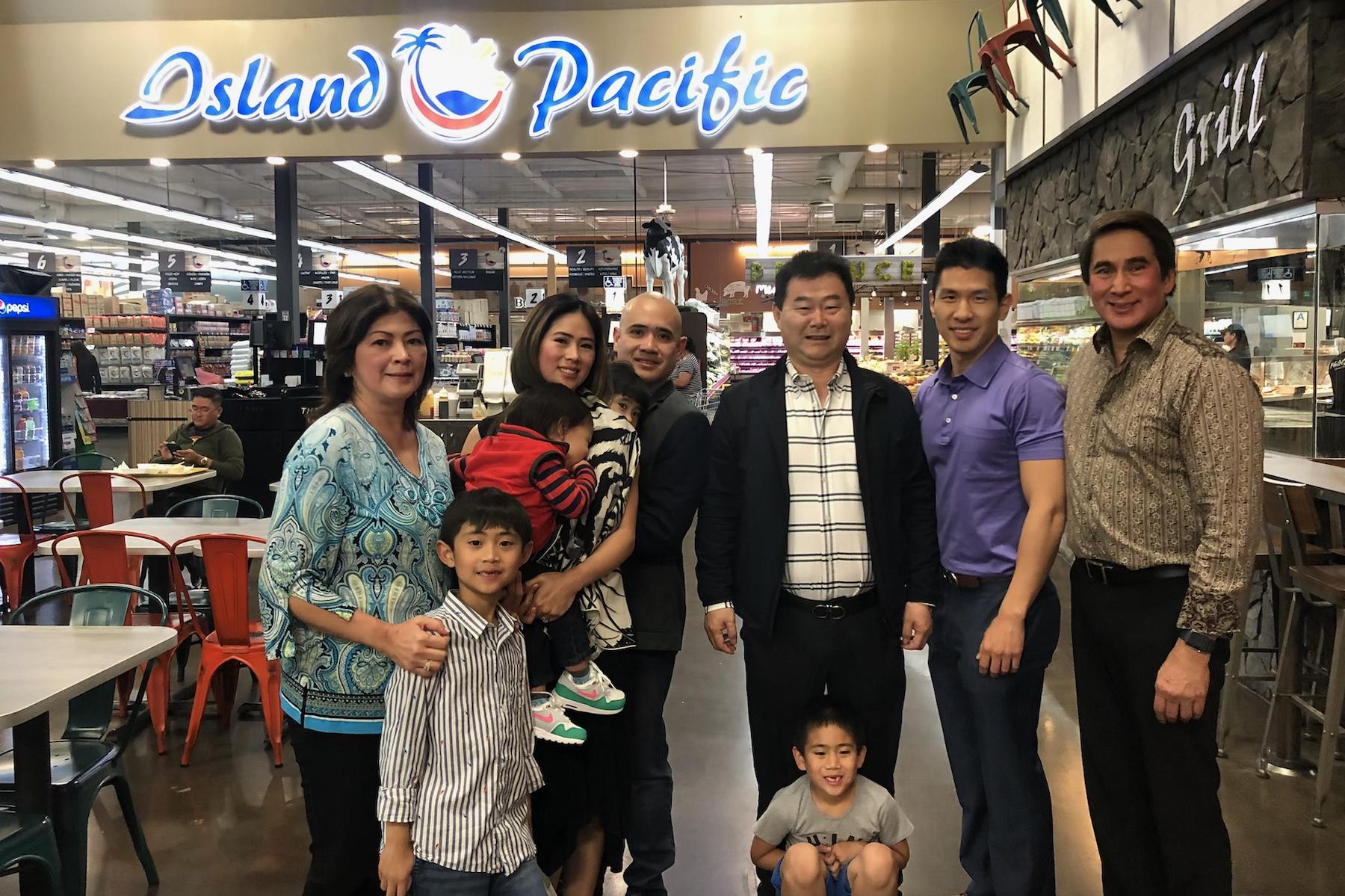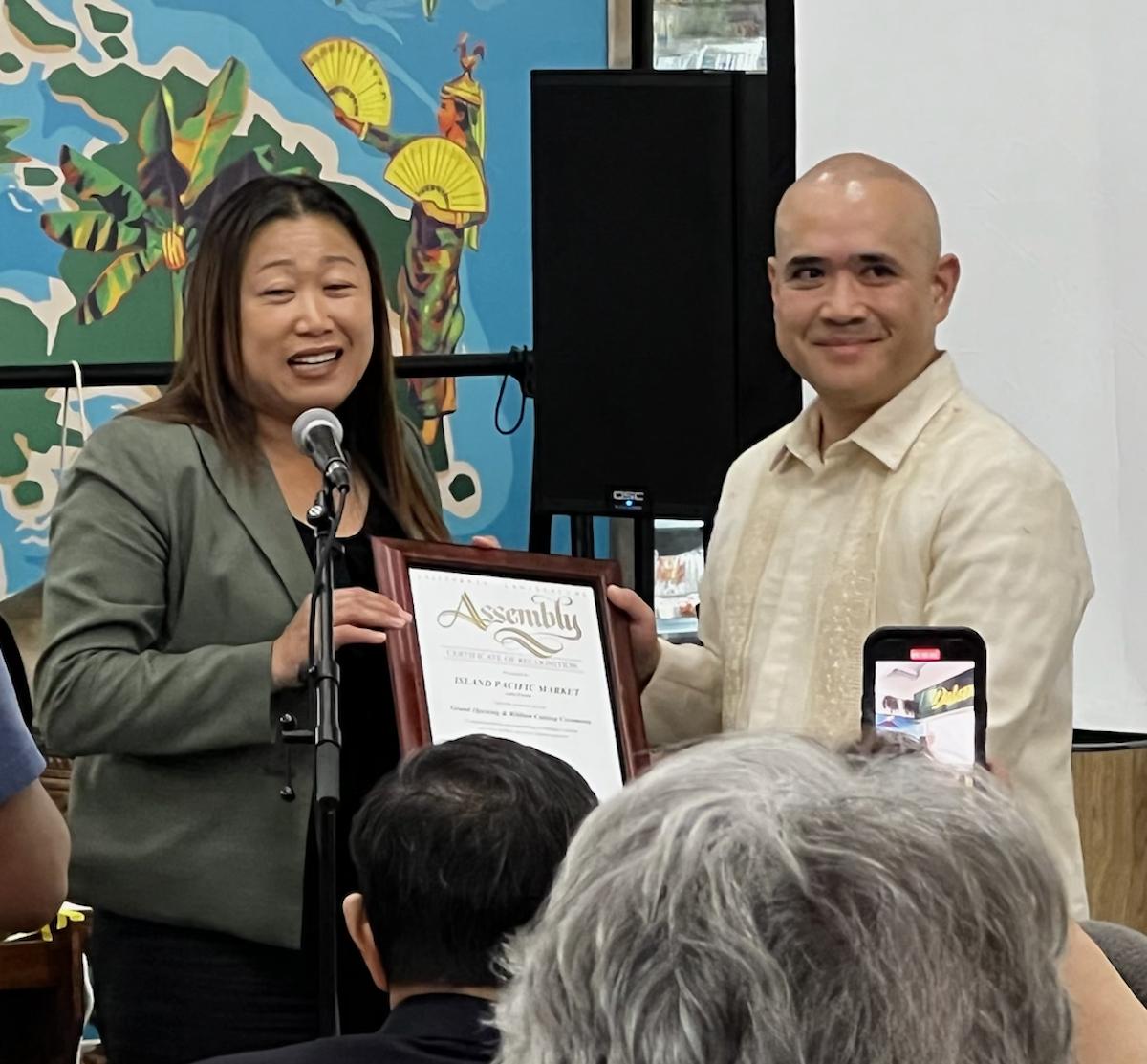
Photos by Jessica del Mundo
Lim discusses the history of Island Pacific Supermarket and business philosophies as the grocery chain enters a new era with newly-appointed CEO Maite Defensor
AS OF 2024, Filipinos in the United States have the luxury of choice when it comes to Asian cuisine-focused grocery stores. Since food is an integral part of the community for Filipinos, Filipino families must have the choice between big box superstores, smaller neighborhood markets, and everything in between.
In 2000, entrepreneur Nino Jefferson Lim recognized the importance of choice when he established Island Pacific Supermarket, a popular grocery market chain that specializes in Filipino and other Asian products.
“The main goal of Island Pacific, the primary reason why we exist, has always been to promote Filipino food and culture,” Lim told the Asian Journal in an interview in January.

In Nov. 2023, after decades of expanding the chain to nearly two dozen locations, Lim stepped down as CEO; on Feb. 2, the company announced veteran multi-industrial entrepreneur Maite Defensor as its new CEO.
“I started this company 24 years ago and I’ve been doing this for 24 years. Stepping back, I think, [is] one of the most difficult things you can do. Still, I’m very excited for the next generation,” Lim said, noting that selecting a female CEO who can “give a different perspective” was intentional.
The news of an incoming CEO follows a 2023 Fortune Magazine report that Island Pacific Supermarket is one of the “Top 20 Best Large Workplaces in Retail,” which Lim said he takes great pride in.
“The people that work under me — I always tell them that this is the deal. I’m gonna make sure you guys are taken care of. I’ll be there for you guys. The only thing I ask for in return is this: you guys do the same to whoever is under you, and you communicate that same message,” Lim stated.
Many factors can account for Island Pacific’s rapid growth. The company’s emergence in 2000 coincided with an influx of Filipinos migrating to California. The grocery chain’s entrance into the market also supplied a community that didn’t have many options for Filipino offerings.
But it was Lim’s passion and family story that make Island Pacific’s story one that truly captures the new American Dream.
Lim grew up in West Covina, California, the son of Filipinos who were involved with the grocery business. His father was in the business of moving wholesale food products — importing food products from the Philippines, and selling them to small food markets in the Los Angeles area.
The father’s business of importing goods grew and eventually, Lim’s mother was able to open up her own local grocery in West Covina: a family-operated 6,000-sq.-ft. Filipino foods market.
“I still recall that store. I would work there, [and] my sister would work there. Our extended family worked there,” Lim remembered, adding that his mother’s business had partnered with his father’s importing business.
But, eventually, a threat would befall the family business: a few blocks away, a major, big-box Filipino supermarket chain opened up.
Across the U.S., this story is all too familiar. A beloved mom-and-pop business is forced to shutter following the arrival of a big box retailer that offers the same products but at a far lower price — a phenomenon that would hit the Lim family.
“A lot of us don’t realize that when a [small] family business closes, the impact is tremendous,” Lim shared. I witnessed my mother in tears and I remember telling her that when we grow up, we’re going to fight back. We’re going to compete again.”
After graduating from the University of Southern California (USC), Lim decided to parlay his knowledge and experience with the food product distribution and grocery industries into starting Island Pacific Supermarket in March 2000.
The company set up its first location in Panorama City, California — an LA suburb with a high concentration of Filipinos — and soon, the company ballooned to other cities in the Golden State, including Lim’s hometown, West Covina.
For Lim, Island Pacific wasn’t just about rectifying his mother’s shuttered business, but it was about providing the Filipino community with options.

“Given my experience, I felt the need that it was very important that there be competition because when there’s no competition, and when the community is just being served by one store, the prices are always higher,” Lim explained.
Lim also saw Island Pacific as a diverse showcase of Asian-owned brands. Rather than stock shelves with mainly Island Pacific-branded products, the company would make sure that other brands would be readily available, too.
“It’s given for a store to increase the bottom line. I believe that the job of a grocery store is to act as a buyer [of products] for our consumers,” he explained. “That’s our job. That’s our responsibility — to give them what they want because our philosophy is not to tell them what they should want.”
The story of Island Pacific thus far is a story of prosperity, a true representation of what is possible in the free market of the American Dream.

“It’s a humbling experience to be able to contribute to [the Filipino community], to be able to tell the next generation that we can be very proud of our culture of hospitality and kindness,” Lim said, noting that part of Island Pacific’s mission is to be a community nerve center that celebrates diversity and inclusion.
But the reality of owning and growing a business involves obstacles and true tests of emotional and mental strength and endurance.
In the mid-2010s, Lim and Island Pacific saw extremely rapid growth; not only was the company growing in California, but a Las Vegas location opened. Additionally, following the closure of several Fresh & Easy stores, Island Pacific acquired several new locations in a short period, growing from 12 locations to 24 in the blink of an eye.
The sudden expansion became too much for Lim to handle, leaving the future of Island Pacific hanging in the balance.
“I lost control. The growth was too rapid, too fast. I failed to be a good equalizer,” Lim recalled, adding that the exponential growth almost caused “the closure and demise of the entire company.”
Recalling the hard hit his family took in the 90s when his mother’s store was forced out of business, Lim said that the threat of losing his entire empire “was very traumatic.” In 2018, Island Pacific closed down six locations in California.
But despite suffering a major hit, Lim describes the company’s reconstruction period as one of the company’s greatest achievements. And Lim is more than willing to discuss the hardships of his company because not only is it ahistorical to only discuss Island Pacific’s achievements, but it is disingenuous.
No matter how anxiety-inducing that period was, he said that a motivating force behind the company’s comeback was his and his team’s confidence and faith in Island Pacific’s mission.
“I don’t like to just talk about success because it’s so artificial and so fake. Success and failure belong to the same coin — it’s just on different sides,” he said.

To Filipinos who want to become business leaders and entrepreneurs, Lim firmly stated, “Don’t do it unless you’re extremely passionate. You need to be passionate in order for you to persevere because times will get very, very tough.”
He added, “You really need to believe in what you’re doing and know that what you’re doing matters — that it’s important, that it’s bigger than yourself.”






